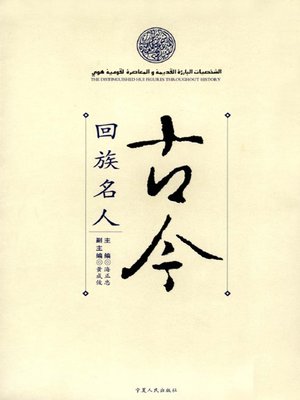
Sign up to save your library
With an OverDrive account, you can save your favorite libraries for at-a-glance information about availability. Find out more about OverDrive accounts.
Find this title in Libby, the library reading app by OverDrive.



Search for a digital library with this title
Title found at these libraries:
| Library Name | Distance |
|---|---|
| Loading... |
我们不可以把回族与伊斯兰教这两个概念等同起来,不可以把民族问题与宗教问题混为一谈,但"回族是以伊斯兰教为纽带逐渐形成的民族共同体"的结论已经得到了共识。从唐宋时期的"番客""土生番客"到蒙元王朝的"回回人"(官方文书按其职业称为"回回军""回回工匠""回回商人""回回掌教"等),因为政治上的共同命运,宗教信仰上的一致,生活上围清真寺而居的居住格局,形成共同的民族意识。明代,回回脱离行伍生活,从事农业、牧业、手工业、商业,形成以农业经济为基础,以商业经济为特色的行业特点。(We cannot equate the concept of "Hui" and "Islam", cannot confuse national problem with religious problem, but the conclusion of "Hui is a gradually formed national community linked by Islam" has been a consensus among people. From "foreigners" and "native foreigners" in Tang and Song Dynasties, to "Hui Hui people" (the authorities called them Hui Hui army, Hui Hui craftsmen, Hui Hui merchants and Hui Hui Imam according to their professions) in Mongolian Yuan Dynatsy. Due to the common fate on politics they share, the consistence on religious belief and living patterns around Masjids, they have formed a common national consciousness. In Ming Dynasty, Hui Hui was separated from ranks and engaged in industries like agriculture, animal husbandry, handicraft and trading, formed an industrial characteristics featuring commercial economy.)







